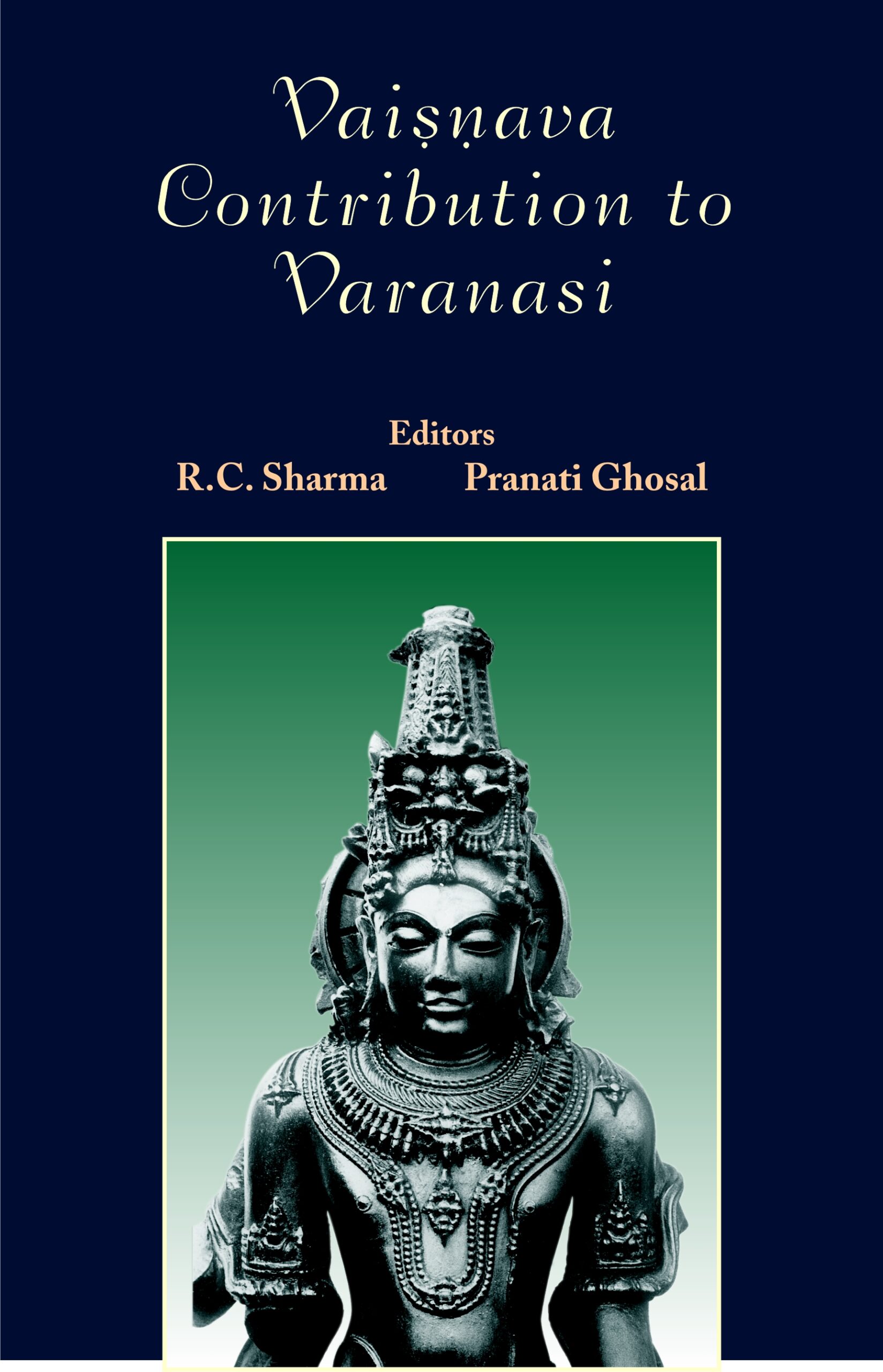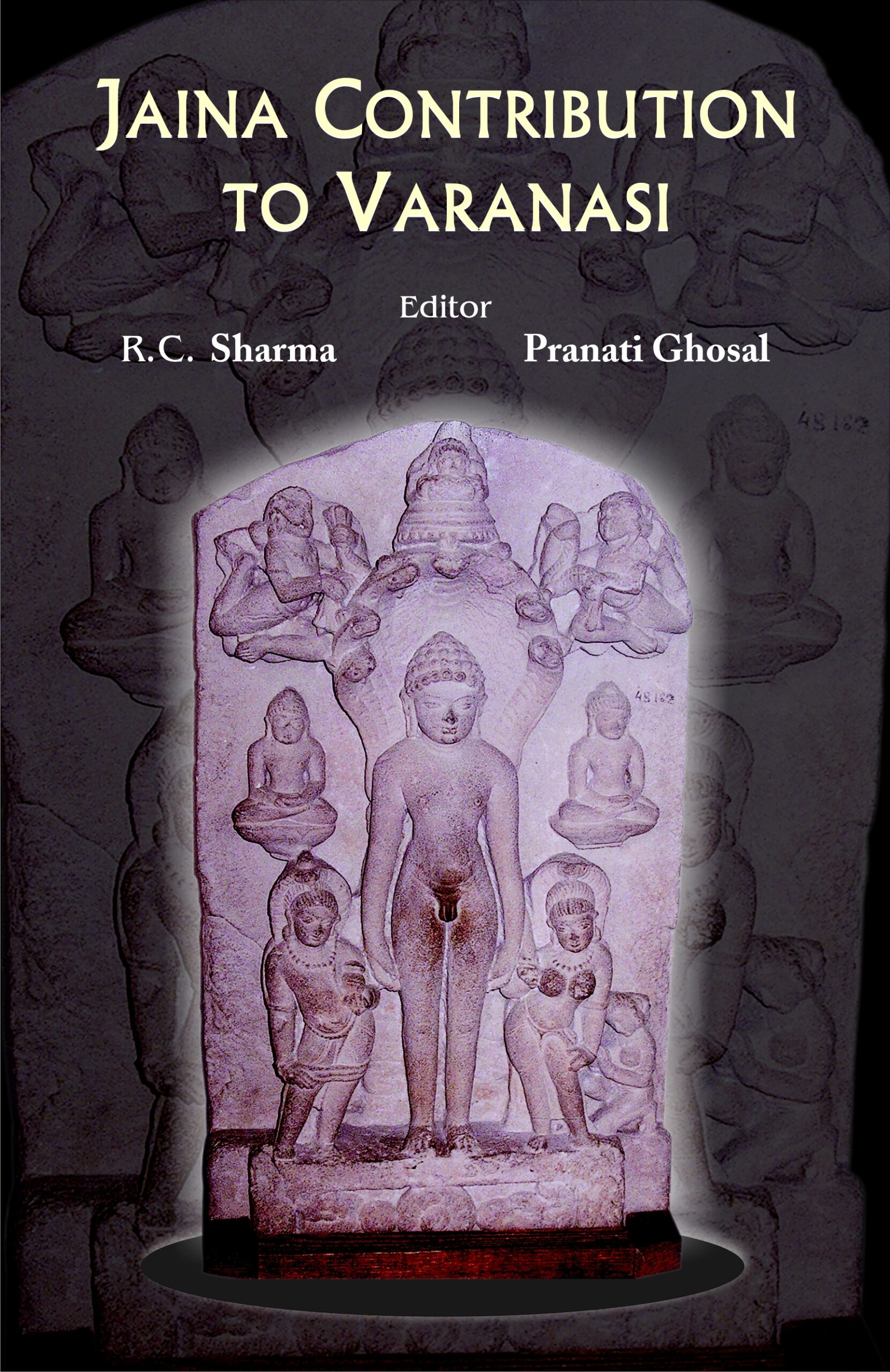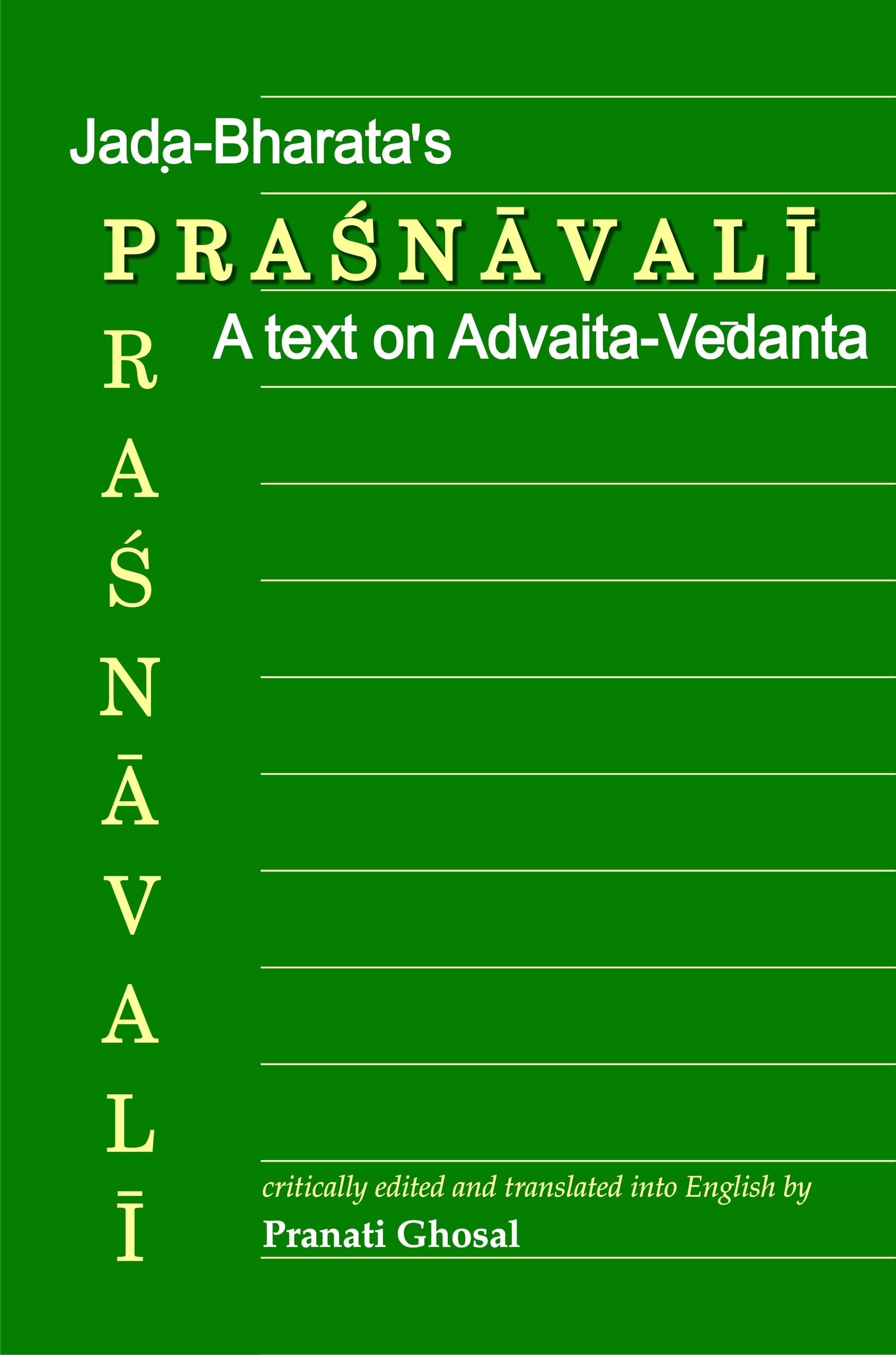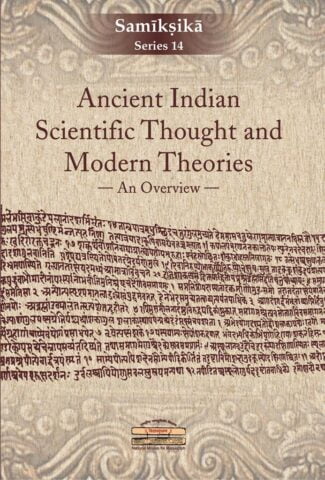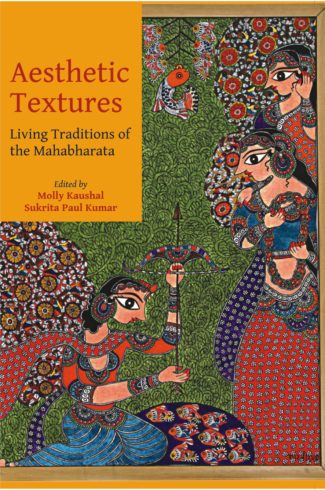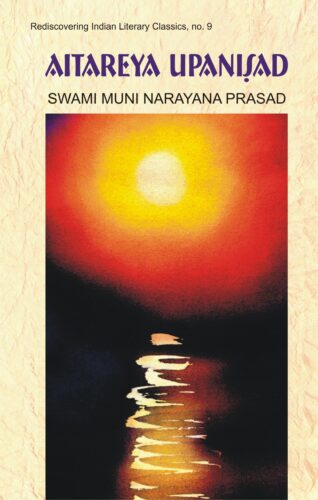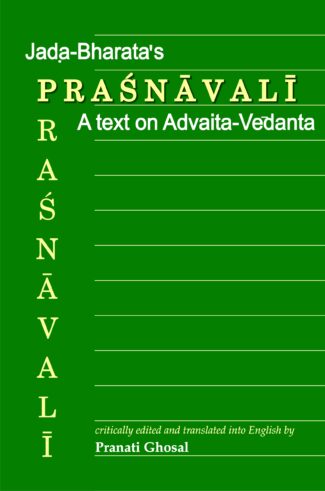
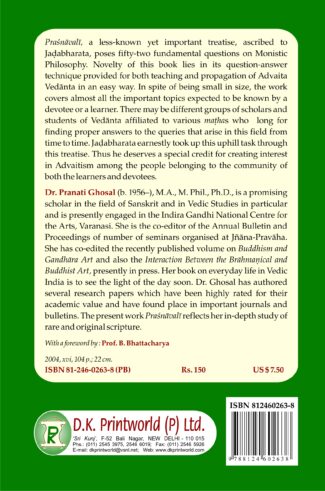
Jada Bharatas Pras...
Jada Bharatas Prasnavali
(A text on Advaita-Vedanta) by: Pranati GhosalProfessor Filippi explores the Indian view of mortal existence from an individuals conception to his/her journey to the Kingdom of Yama with rare scientific objectivity by unveiling a complex network of sentiments, beliefs, scriptural references, customs, etc.
₹150.00 Original price was: ₹150.00.₹135.00Current price is: ₹135.00.
ISBN: 9788124602638
Year Of Publication: 2004
Edition: 1st
Pages : xvi, 104
Bibliographic Details : Glossary; Bibliography
Language : English
Binding : Paperback
Publisher: D.K. Printworld Pvt. Ltd.
Size: 22 cm.
Weight: 225
Prasnavali, a less-known yet important treatise, ascribed to Jadabharata, poses fifty-two fundamental questions on Monistic Philosophy. Novelty of this book lies in its question-answer technique provided for both teaching and propagation of Advaita Vedànta in an easy way. In spite of being small in size, the work covers almost all the important topics expected to be known by a devotee or a learner. There may be different groups of scholars and students of Vedanta affiliated to various mathas who long for finding proper answers to the queries that arise in this field from time to time. Jadabharata earnestly took up this uphill task through this treatise. Thus he deserves a special credit for creating interest in Advaitism among the people belonging to the community of both the learners and devotees.
Blessings
Foreword
Preface
Abbreviations
1. Introduction
2. The Text
3. English Translation
4. Similar References
Glossary
Bibliography

- Sale!Ancient Indian Scientific Thought and Modern Theories by: Dhirendranath Banerjee, Sanjit Kumar Sadhukhan,
₹350.00Original price was: ₹350.00.₹315.00Current price is: ₹315.00.The experiences and knowledge from our past are recorded in manuscripts which have been handed down to us over several thousand years. The Government of India, through the Department of Culture, took note of the importance of this vast tangible heritage and, in order to preserve and conserve as well as to make access to this wealth easy, established the National Mission for Manuscripts (NMM). In order to disseminate the knowledge content of manuscripts, the Mission has taken up several programmes such as lectures, seminars and workshops. The Mission has published the proceedings of the above-said programmes under the following series: Samraksika (on conservation), Tattvabodha (comprising lectures based on manuscripts delivered by eminent scholars), Samiksika (research-oriented papers presented in the seminars), Krtibodha (transcribed and edited texts prepared at advanced level manuscriptology workshops conducted by NMM) and Prakasika (publication of rare, unpublished manuscripts).
Ancient Indian Scientific Thought and Modern Theories makes one revisit the development of Indian science and technology in varied fields since the Vedic period, and suggests that we have a living tradition which is vivid and dynamic, inheriting at the same time claiming freedom from the past. It is the proceedings of a three-day seminar held during 25-27 March 2017 in Kolkata, organized by the Sanskrit Sahitya Parishad, Kolkata, and sponsored by NMM. This volume bears testimony to the fact that Indian sages, philosophers and scholars had a grip on all the topics that the modern-day scientists deal with, including complicated surgery and quantum mechanics. Our Vedas, Upanisads and other literary works were the storehouse of scientific wisdom, though the prevailing socio-religious conditions impeded its widespread dissemination.
This volume is expected to invoke keen interest among all who wants to know about a scientific past that Indians inherit, be a scientist or a layman. - Sale!Aesthetic Textures by: Molly Kaushal
₹1,800.00Original price was: ₹1,800.00.₹1,620.00Current price is: ₹1,620.00.The fascinating world of multiple Bharatas that this book introduces its readers with is that of a perennial tale discovered and created afresh at each juncture of time; at each moment of self-doubt and self-exploration; at each rejoicing of self-discovery and self-recovery. If one does not come across a seamless continuity here, one does not encounter apparent ruptures either. The Bharatas, as narrated here, present us with amazing diversity with palpable consubstantiality expressed in myriad forms and multiple hues; tradition belonging as much to its contemporaneity as to its past; belonging as much to the spokes as to the axle; centrifugal and centripetal at once; a tradition old and new at the same moment of time.
The book is based on the proceedings of a seven-day international conference organized by the Indira Gandhi National Centre for the Arts (IGNCA) on the living traditions of the Mahabharata in the year 2011. The conference explored the multiple tellings and retellings of the Mahabharata story as sung, danced, and celebrated in festivals, inscribed on to geographic landscapes, committed to memory as sacred genealogy, embodied in rituals, and sculpted in shrines and temples. The presentations ranged from issues of poetics and ethics to translations, adaptations, and variations to folk and tribal traditions as sung, recited, and performed. Rather than exploring the Mahabharata as a book or a singular narrative, these papers focus on the multi-tradition of the Mahabharata in all its multidimensionality, multiplicity, and above all, in its fluidity. The book would certainly interest the scholars engaged in the study of the living heritage of Indian epics, folklorists, indologists, and anthropologists. - Sale!Atreyashiksha by: Deepro Chakraborty
₹800.00Original price was: ₹800.00.₹720.00Current price is: ₹720.00.Atreyashiksha is one of the Shiksha texts of the Krishna-Yajurveda, Taittiriya school. This text has been critically edited and translated consulting two palm-leaf manuscripts which are currently the only discovered manuscripts of this text in public libraries. Shiksha texts deal with phonetics and phonology of the Vedas and the method of proper pronunciation and recitation. The Atreyashiksha is well-structured in terms of arranging its topics of discussion.
When compared to the other Shikshas of the Taittiriya school, the Atreyashiksha, in keeping its focus on the discussion on the different methods of Vedic recitation, namely, word-reading (padapatha), sequential reading (kramapatha), tangled reading (jatapatha) and the five varieties of the reading of the phonic sequences (varnakramas), holds a unique position in the corpus of the Shiksha literature. A close reading of the text shows that the main aim of the text is to explain the practical aspects of the different ways of Vedic recitation, in whose connection it describes the theoretical elements of Shiksha too.
The book, therefore, serves as a practical guidebook to Vedic reciters who recite the above-mentioned readings of the Taittiriya Krishna-Yajurveda along with the continuous reading. While describing the methods of recitation, the Atreyashiksha gives enough emphasis on the theoretical nuances. The phonological rules, most of which are expressed in the Taittiriya Pratishakhya, are also illustrated in this text. This book consists of a detailed introduction, the critically edited text in Devanagari script, its Roman transliteration and an authentic English translation. - Sale!Aitareya Upanisad by: Swami Muni Narayana Prasad
₹110.00Original price was: ₹110.00.₹99.00Current price is: ₹99.00.Yet another masterly piece of Hindu spiritual wisdom, Aitareya essentially reinforces the grand Upanishadic message which is neither a picturesque mythology nor a promise of heaven nor a threat of hell. It is yet another reminder (from the ancient seers) of our cosmic connection showing how this universe, this phenomenal world of ours, and all that is created, whether movable or immovable, are unfolded from one primeval casual Reality: atman, variantly called the Supreme Spirit, Pure Consciousness or Prajnanam Brahma; and how, in turn, atman perceives itself as the one underlying substance of all these phenomena. A distinguished exponent of Vedanta, Swami Muni Narayana Prasad reinterprets this Upanishad, developing refreshing insights into its textual discourse, its meaning, and its message. Also included in this critical commentary are its original Sanskrit text, Romanised transliteration, and verse for verse English translation. Appended to the Rigveda, Aitareya Upanishad comprises three chapters (IV-VI) of the Aitareya-Aranyaka which, in itself, is a continuation of Aitareya Brahmana. And as one of the principal Upanishads is invaluable as much to the discerning readers as to the scholars of Indian philosophy.
- Sale!Brhadaranyaka Upanisad Vol. 1 Madhu Kanda by: Nitya Chaitanya Yati
₹800.00Original price was: ₹800.00.₹720.00Current price is: ₹720.00.The Brihadaranyaka Upanishad is one of the ten major Upanishads. A dialectical narration that unabashedly stands up to the rational scrutiny of the modern mind, it is directed towards both the individual aspirant caught up in the dark morass of confusion and the philosophic thinker in search of rare pearls of wisdom from humanitys treasury. Guru Nityas matchles commentary will enable the reader to discover the ancient seers timeles insights, to appreciate a fully-developed, integrated system of thought, and, most importantly, to learn to connect with what is real and enduring in his or her own essence. Schematically, the Brihadaranyaka Upanishad a brilliant discourse from the Yajur Veda is set out in three volumes, entitled: Madhu Kanda, Muni Kanda and Khila Kanda. In his planned three-volume thorough-going, meticulously analytical commentary. Guru Nitya distills the wisdom teaching of the Brihadaranyaka Upanishad, drawing on his intimate understanding of the human psyche, as well as both Eastern and Western philosophy, science, art and literature. Dwelling in turn on each of its 435 mantras, its poetic charm, myths, metaphors, images and symbols, Guru Nitya recreates and expands the Upanishadic vision of our own nature, human interaction, and the cosmos, and their relation to the unmoved essence of all. With highly useful appendices and a comprehensive index, the commentary will hold an enduring appeal for both scholars and discerning readers.


